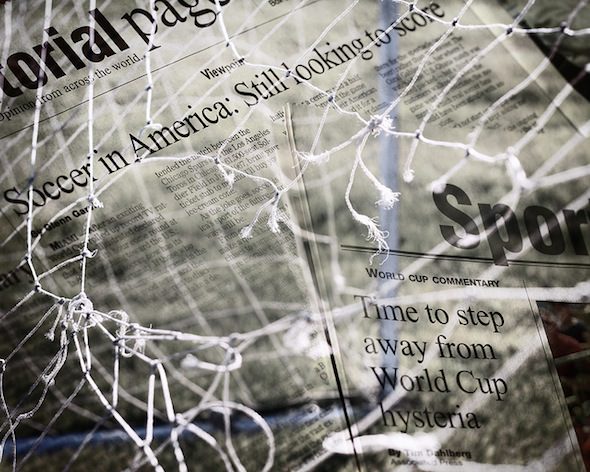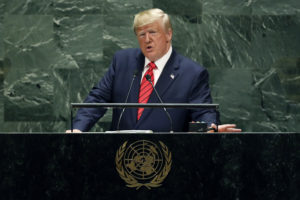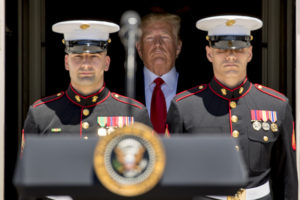World Cup: The Globalized Game
In the July issue of Harper's Magazine, sports writer Simon Kuper tracks the World Cup's transformation from a postwar proxy for establishing claims to national supremacy to an expression of the border dissolving tendencies of globalization.
In the July issue of Harper’s Magazine, sports writer Simon Kuper tracks the World Cup’s transformation from a postwar proxy for establishing claims to national supremacy to an expression of the border dissolving tendencies of globalization.
The first World Cup was held in Uruguay in 1930, “after the success of the Olympic soccer tournaments of the 1920s,” Kuper writes. Italian dictator Benito Mussolini was perhaps the first leader “to seek national prestige through soccer.” But after World War II, “nationalism in Europe ceased to prompt wars; instead it became World Cup nationalism. … Those eleven young men in plastic shirts were the nation made flesh — more alive than the flag, less individual than the queen, more tangible than gross domestic product.”
Kuper brings us into the early 21st century:
The World Cup at which I first grasped the fading old-style nationalism was in 2006, in Germany. That summer you could see a shift to a kind of carnival nationalism: people from around the world dressed up, each in their own national colors, and then watched games together on public squares with giant screens. (For some games, close to a million people gathered at Berlin’s Brandenburg Gate.) Oliver Bierhoff, the German team’s general manager, remarked with surprise that fans had become less interested in results. Above all, they were out to have fun. It was no longer a matter of national virility, or life and death.
… You still get the odd reference to Nazis and wars at some matches — English fans imitating bomber planes at England-Germany games, for instance — but now it’s generally done as a joke. The war is being used to spice up what have become almost entirely just soccer rivalries. This isn’t old-style nationalism anymore. It’s carnival nationalism, the World Cup minus the hate.
Kuper concludes his essay with a quote from Iraqi-born British historian Elie Kedourie. Nationalism, it reads, “is a doctrine invented in Europe at the beginning of the nineteenth century.” Kuper adds: “Within soccer and without, that doctrine may be nearing the end of its run.”
Get a subscription to Harper’s Magazine — or find a friend who has one — to read the article in full.
— Posted by Alexander Reed Kelly.
Your support matters…Independent journalism is under threat and overshadowed by heavily funded mainstream media.
You can help level the playing field. Become a member.
Your tax-deductible contribution keeps us digging beneath the headlines to give you thought-provoking, investigative reporting and analysis that unearths what's really happening- without compromise.
Give today to support our courageous, independent journalists.






You need to be a supporter to comment.
There are currently no responses to this article.
Be the first to respond.